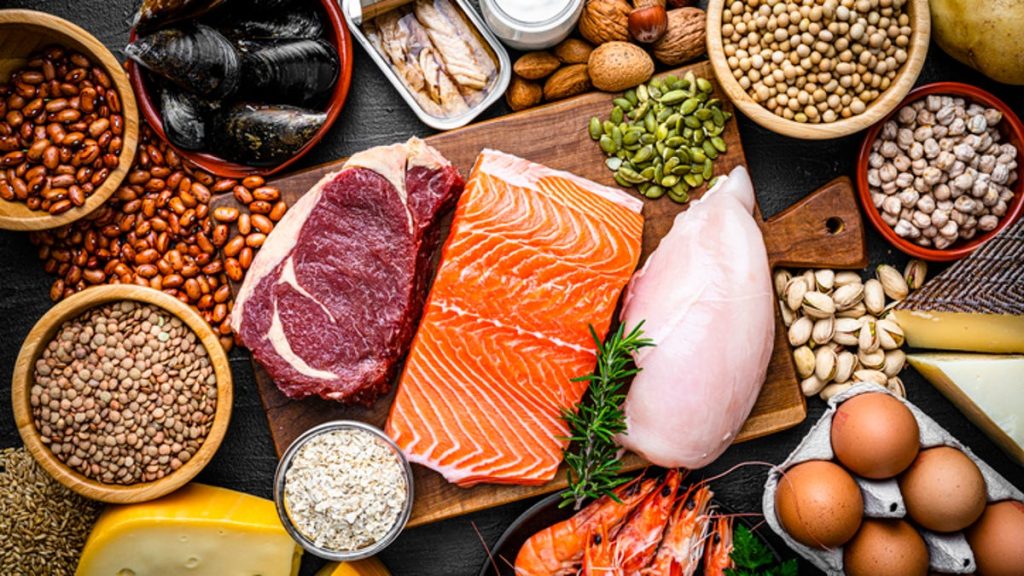Protein is an essential component of our diets and plays a crucial role in helping our bodies function properly. It helps regulate hormones, transports molecules, acts as enzymes for chemical reactions, and more. The recommended daily intake of protein for the average person is around 100 grams, although this number can vary depending on factors such as activity level. A visual guide has been created to show what 100 grams of protein looks like for individuals following vegan, vegetarian, or omnivore diets. The measurements were obtained from nutrition labels on various packaged items and may vary depending on the specific products used.
For omnivores, getting 100 grams of protein per day is relatively easy. A sample day of meals that adds up to 103 grams of protein includes foods like Greek yogurt, beef sausage, mixed nuts, eggs, snack cheese, deli ham, rye bread, and rolled oats. Animal products such as eggs, meatballs, turkey bacon, turkey breast, and tuna can easily contribute to reaching the 100-gram protein goal for omnivores. Adding nonanimal products to these meals can further exceed the protein target for the day.
Vegetarians can also achieve the 100-gram protein goal by incorporating foods like eggs, rolled oats, peanut butter, hemp seeds, protein granola, plant-based protein powder, and Greek yogurt into their diet. This combination adds up to 99 grams of protein for the day, which is close to the target but still a good amount to consume. Including high-protein vegetarian sources like tofu, tempeh, or plant-based meats can help vegetarians reach their protein needs more easily.
For individuals following a vegan diet, getting 100 grams of protein can be a bit more challenging but is still achievable. A sample day of meals includes foods like protein granola, plant-based protein powder, nuts, peanut butter, chia seeds, hemp seeds, rye bread, and rolled oats, totaling 79 grams of protein. Doubling up on certain items like nuts, seeds, or adding more oats can help bring the protein intake closer to the target. Incorporating high-protein vegan meat substitutes like tofu, tempeh, or plant-based meats can also help vegan individuals meet their protein needs.
Overall, protein is a vital nutrient that plays a key role in various bodily functions. By including a diverse range of protein-rich foods in their diets, individuals can meet their daily protein requirements, whether they follow a vegan, vegetarian, or omnivore diet. Planning meals that include a mix of animal and plant-based protein sources can help ensure adequate protein intake and support overall health and well-being. Experimenting with different foods and recipes can also help individuals find enjoyable ways to meet their protein needs while maintaining a balanced diet.


